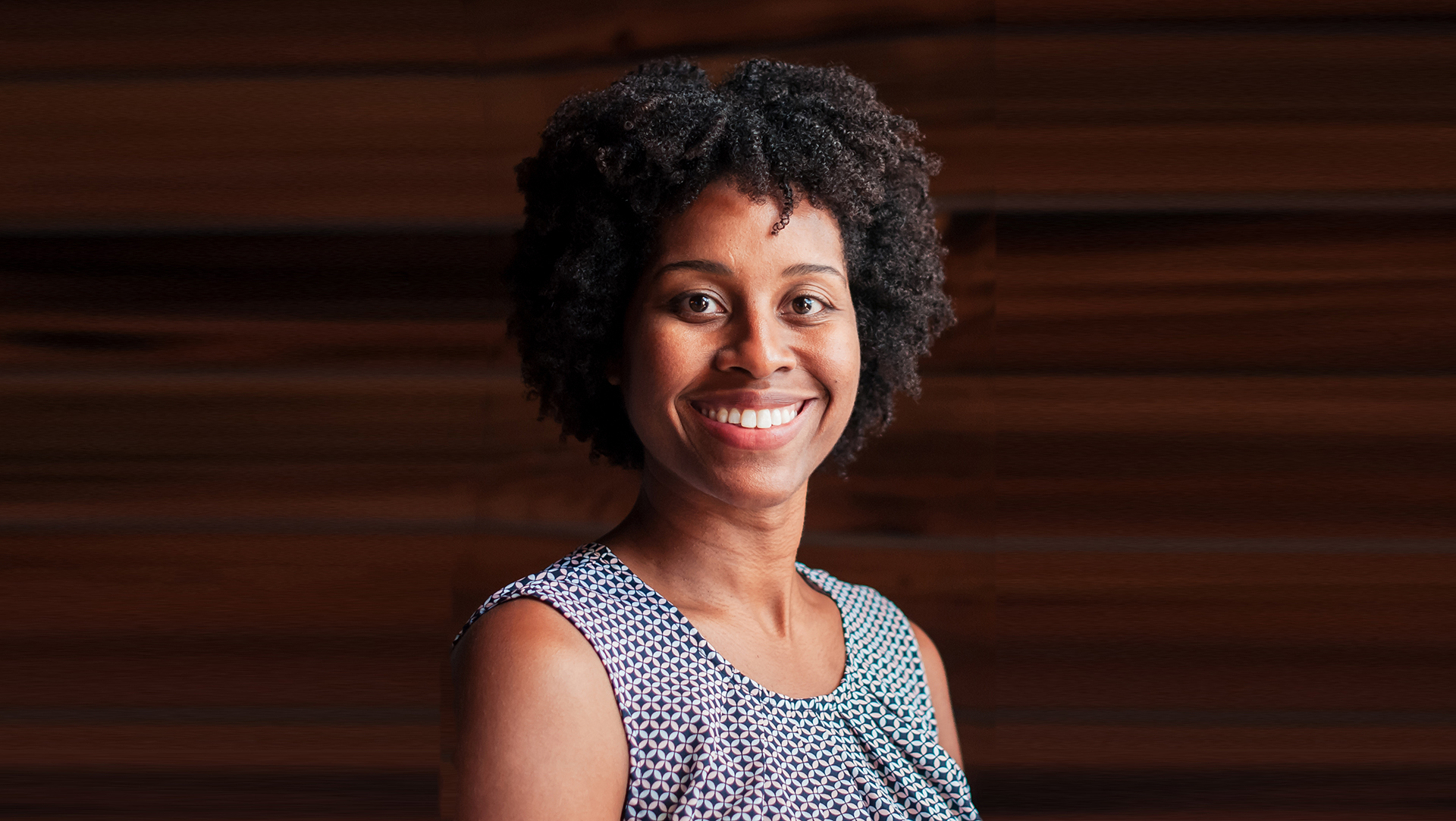 Rice University computer science alumna Kijana Knight-Torres (B.S. ’03) never planned to be a pioneer, but her passion for improving the user experience keeps leading her off the beaten path.
Rice University computer science alumna Kijana Knight-Torres (B.S. ’03) never planned to be a pioneer, but her passion for improving the user experience keeps leading her off the beaten path.
“All the rules we have for improving the user experience in technology also apply to services – how people interface with government, health care, education. So I’m in uncharted territory, figuring out how I can use my UX knowledge and bring together data scientists, researchers, designers, and engineers for social good. People are writing this chapter right now and it’s exciting to be doing this kind of work at this particular moment.”
She first discovered her passion for the way people use technology while completing her Rice degree. Knight-Torres then honed her coding skills for four years as a software engineer for Motorola, but she kept thinking about the user experience.
“Through my work as a coder, I became more interested in the social aspect of how people use software and systems. As a developer, I was creating components that went into digital products that my mom might use and I was certain she wasn’t going to use the system the way we had designed it.”
Knight-Torres completed a master’s degree in information studies at the University of Texas at Austin, where she focused in usability. After working to improve user experiences as a consultant for 10 years, she began to turn her focus service design.
She said, “My area now is undefined. There isn’t a standard job title, and there aren’t a lot of people doing it. So I get to define it. The field of service design is still evolving. You have something to contribute? Bring it. We can completely remix and define it. Once we show how it can be done, other people will follow.”
Because she specializes in UX, it is no surprise that she critiqued and set up solutions to improve her own experience as a female computer science major at Rice University in the early 2000s.
She said, “My freshman year, I started with the introductory computer science class, COMP 210. Several of my girlfriends were in that class with me, and it was a little hard for us. We spent a lot of time doing problems sets and in our professor’s office hours,” she said.
“More and more women in my program started dropping off over the semesters, and some even left the university. Honestly, my CS classmates were mostly men and at the time there were only two only women on the CS faculty.”
In addition to having few female peers, Knight-Torresa also felt her male classmates picked up the CS concepts a lot faster than she did. “They were more confident, and I always wondered if there wasn’t a hole in my understanding. I felt like I had to do a lot more work than my male colleagues.
“I think I stayed in CS mostly because of my personality. If I start something and commit to it in my mind, I’ll see it through to the end, even if it’s hard. I had put so much time and effort into CS and I was ‘almost done,’ so I decided to stick it out.”
Instead of switching majors, Knight-Torres and several of her female classmates set up a network of support. They began with some CS women at Baker, their residential college.
“Two of us got to talking and noticed more freshmen women were coming into the program, so we decided to start a club. Dr. Kavraki agreed to sponsor the CSters and we started meeting together to encourage each other. ‘You aren’t the only one going through this’ could have been our mantra, and we really bonded.”
During the informal meetings, the members talked about their different challenges as well as conferences and competitions that appealed to them. In her senior year, Knight-Torres attended her first Grace Hopper Celebration of Women in Computing.
“GHC was in Vancouver that year and even though there were only 600 participants [compared to 18,000 in 2017], it was still a little overwhelming. I attended a talk by a robotics team from Carnegie-Mellon University and was blown away that women were doing all this cool stuff at other universities –and around the world. That was really inspiring to me.”
Five years later, another woman inspired Knight-Torres, this time in UX research.
Knight-Torres said, “After getting my masters, I went to work for a consultancy, projekt202, where I had the opportunity to apprentice under a masterful UX researcher. She taught me how to shape a design research strategy and the art of making insights and opportunities. I also picked up design skills, even though my forte is research.”
She expects to pay her mentor’s inspiration and guidance forward. Knight-Torres said, “Rice is a gem and I’m glad I had that experience, even if it was often hard and sometimes discouraging. Several women got BAs in CS in our class, but I was the only female graduating with a BS in CS. I considered it a point of pride, but also knew there should have been more of me. As I’ve gone further in my education and career, I always look for opportunities to encourage women to confident as they color outside the lines of the current norms in the professional or academic world.”
When she mentors young women, especially in UX, she ensures they know she didn’t hesitate to leap away from a traditional trajectory.